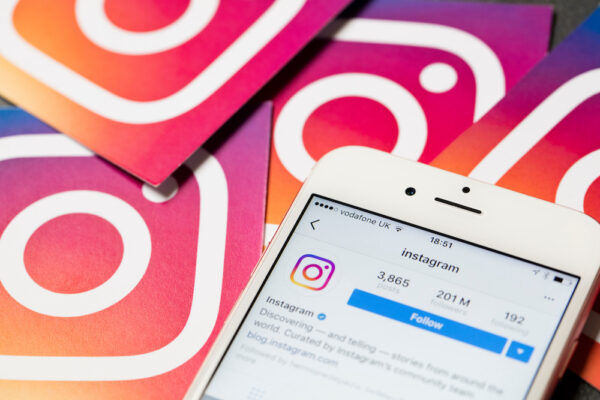The days of taking out a newspaper ad or investing in an impressive billboard along the highway are all but over thanks to advances in mobile advertising and local search. At one time, those newspaper and billboard ads were the best way to get in front of your potential customers because that’s where they were looking. And, to some extent, people still glance through the newspaper or look at the signs along the road as they pass. But the effectiveness of those traditional forms of advertising is limited at best, and useless for many of today’s small businesses.
The only way to truly break through the chaos of today’s consumer market is to market your local business online with effective digital marketing strategies, since that’s where most people are looking these days. That’s how Mom and Pop Shops are standing out from the noise of modern life, by embedding themselves in Google Searches, daily Twitter chatter, and Facebook scrolling.
In the interest of helping the frustrated small business owner (that’s you!) get a jump start on promoting your local business online, here are our top three tactics to get you started with an effective presence on the web;
Local Search
Today’s equivalent of the Yellow Pages in the phone book is a search engine. When people in your neighborhood are looking for the goods and services you offer, their first stop is almost always going to be Google or a similar search engine like Yahoo! or Bing.
In order to get your website to start ranking more prominently in these search results, you’ll want to cover the basics of local search engine optimization. That means making it easy for Google to understand what you do and rank your relevancy to various search terms. Including these relevant search terms in the content of your website is the first step in telling people what you offer (and what you’d like to rank for online). If you sell dog grooming services, make sure there are a variety of mentions to ‘dog grooming’ and ‘dog groomers’ across your website. Simple enough.
Next, make sure you introduce yourself to Google. Set up a Google Business listing and optimize it with proper address, phone number, business hours, and a few photographs. This completes your indexed listing in Google’s library of local businesses and they’ll have more information to pull when people are searching for your type of business.
Lastly, you’ll want to include your website listing in as many local directories and websites as possible, preferably with a link pointing people to your website. Start with the Better Business Bureau, the Small Business Association, the local phone company, and any tourism or Chamber of Commerce sites in the area. Remember, you want the locals to be linking to you. It’s an indication to Google that you’re popular and respected as a local merchant.
Be Social
Once you’ve solidified your local listings for proper search results, it’s time to establish yourself in the community as a friendly, approachable, and “social” business. This means setting up a Facebook Page for your business, along with some supplemental profiles on Twitter, Instagram, and Linkedin. Your social media profiles are the second most popular place for people to research your business, after search engines. That makes it very important to make a good impression with your brand and to maintain a positive customer service relationship with customers online.
Simply having a page on Facebook isn’t enough, of course. You have to post frequently and consistently, and you have to communicate with people. Respond to comments, like other people’s posts, and encourage discussion on your page. The goal is to make yourself visible to the community through communication and the dissemination of relevant media or content. Select one platform to be your primary presence so you don’t overwhelm yourself in the beginning. For most businesses, this is Facebook.
One of the most important things you can do in the “social media” sphere of web marketing is to encourage positive reviews from your customers. Reviews are important to the average consumer and people will read lots of them before they visit or call you. You can’t always avoid bad reviews but you can drown them out with positive ones. Ask your customers to review you on major platforms like Yelp, Google, Facebook, TripAdvisor, UrbanSpoon, and others.
Send Email
Email may seem like an unlikely channel for effectively communicating with your audience since most of us ignore promotional “junk mail” in our inboxes but the stats continue to tell us that the majority of people still respond to effective email communication. So what makes it effective? Not spamming, that’s for sure! To effectively market your local business online, you’ll want to use email.
Start by collecting email addresses on your website from visitors with an opt-in form on the homepage. You can also collect emails at checkout if you run an e-commerce store on your site. When people opt in on their own, you aren’t risking violation of spam laws, as they’ve expressly permitted you to contact them with marketing offers and updates. Try to send informative and interesting emails to your audience. Think about what they would genuinely be interested in reading. (Probably not “Buy now! Buy now! Buy now!!!!!”)
If you make a habit of consistently communicating relevant industry tips, information, news, and updates to your customers, they will be more receptive when you slip a special marketing promotion into the conversation, like a discount code or special offer.
These are just a few initial ways to get you started with digital marketing for your local business. Stay connected to Signal’s Marketing Insights blog and subscribe to our newsletter to get the latest updates in effective online marketing strategy.
Interested in hiring some pros to market your local business online?
Call us today at 888.527.6621!







